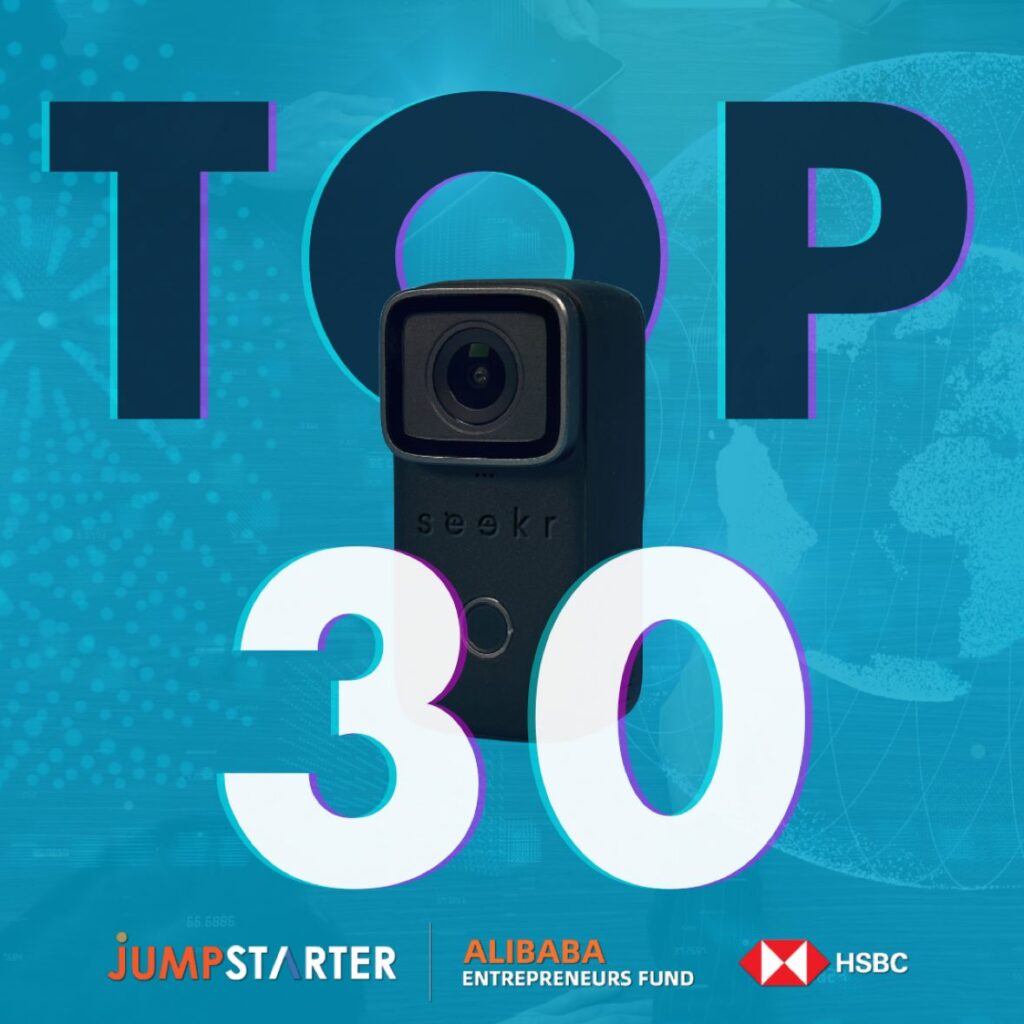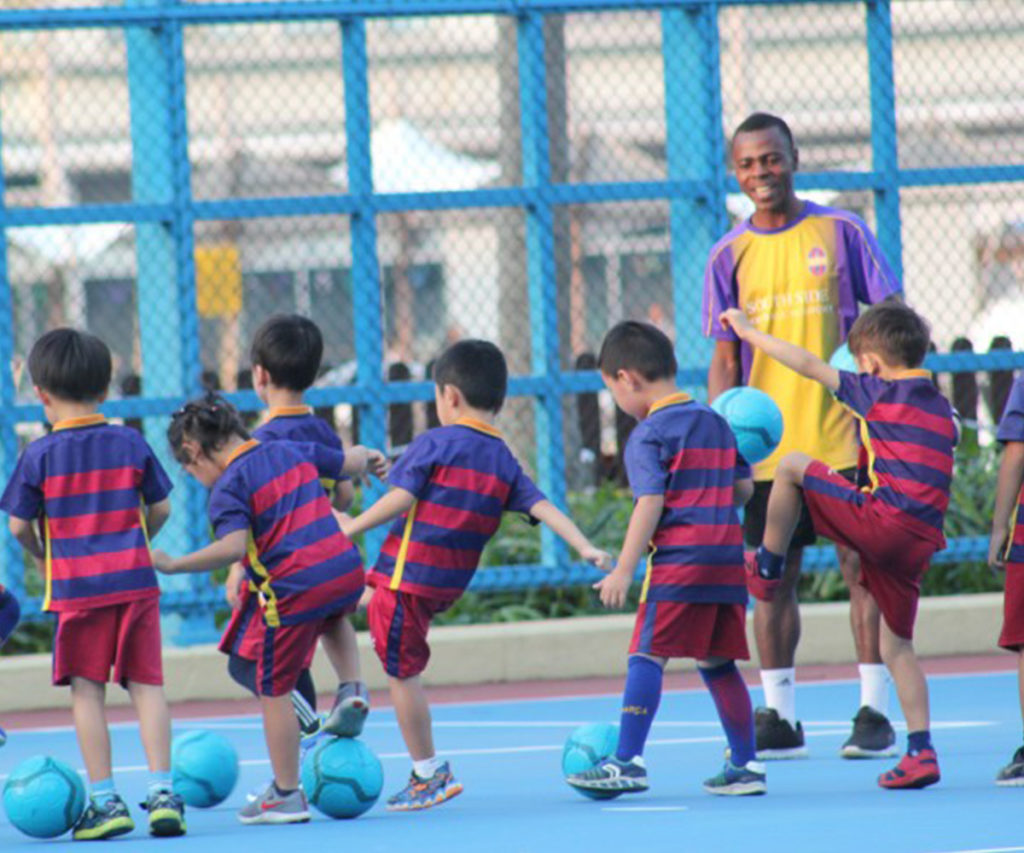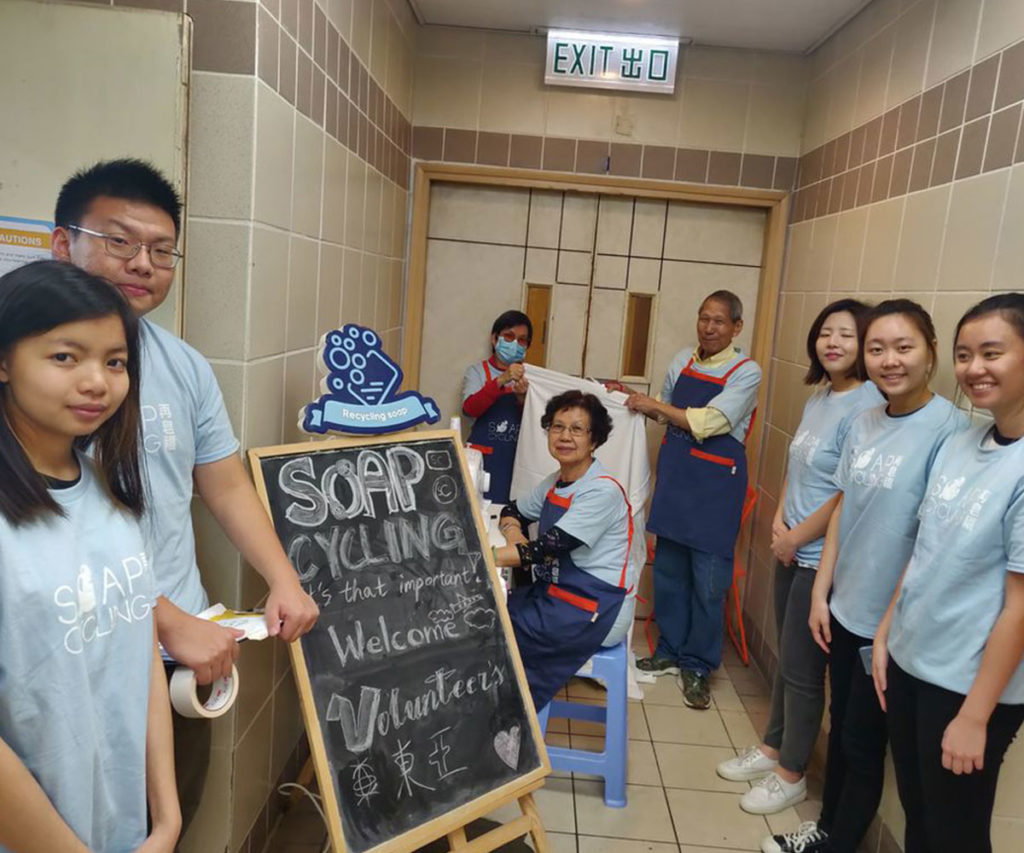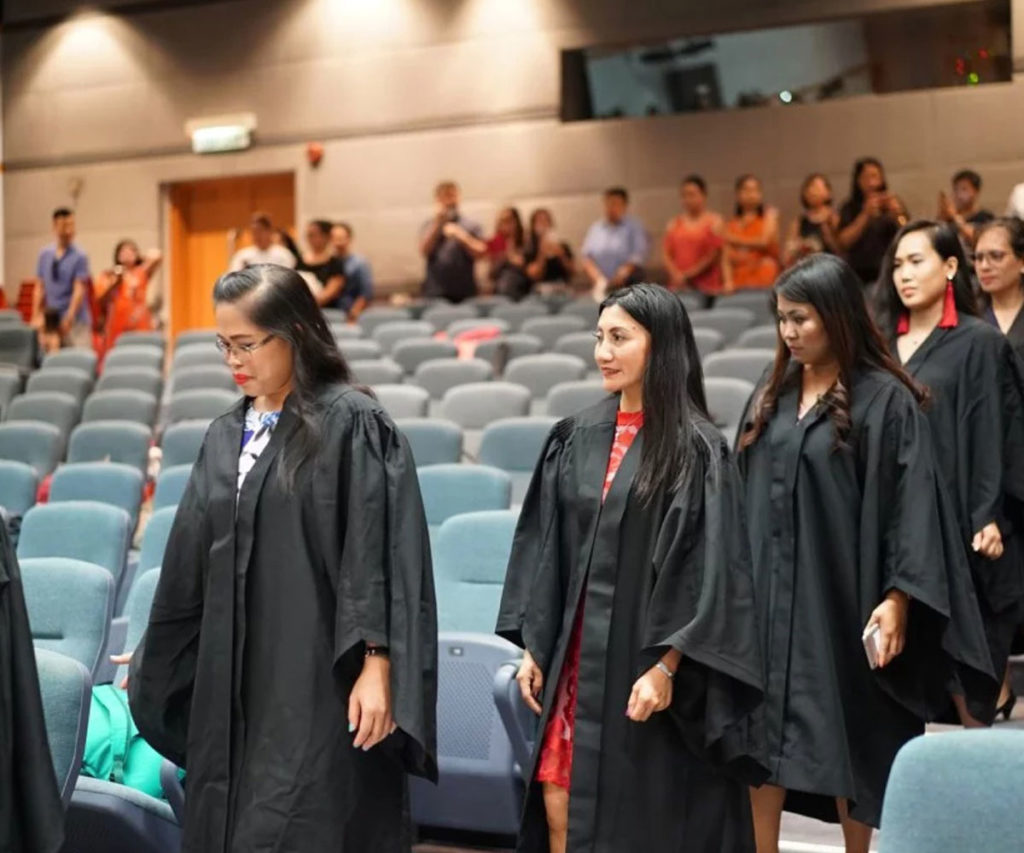With over a decade of track record in youth empowerment, Foundation for Shared Impact (FSI) does not only equip youth with transferable workplace skills, we also offer them the opportunity to become global citizens through working at our partners of social businesses and charities.
The beauty of our shared impact model means that our partner companies benefit as well, whether it is having much-needed talent to help them build capacity, having access to our coworking space and creative studio, or other things that startups or under-resourced organizations simply can’t afford but are essential to their growth.
Read our interview with Lamia Sreya Rahman and Safwan Ahmed, COO and Design Lead of impact-driven startup, Seekr, and Impact Lab intern, Audrey Neoh, to learn more about how FSI creates ripple effects in driving positive social impact.
Interviewees
- AN Audrey Neoh Yi Theng, Impact Lab intern at Foundation for Shared Impact’s Community Business Support team
- LR Lamia Sreya Rahman, COO of Seekr
- SA Safwan Ahmed, Design Lead of Seekr
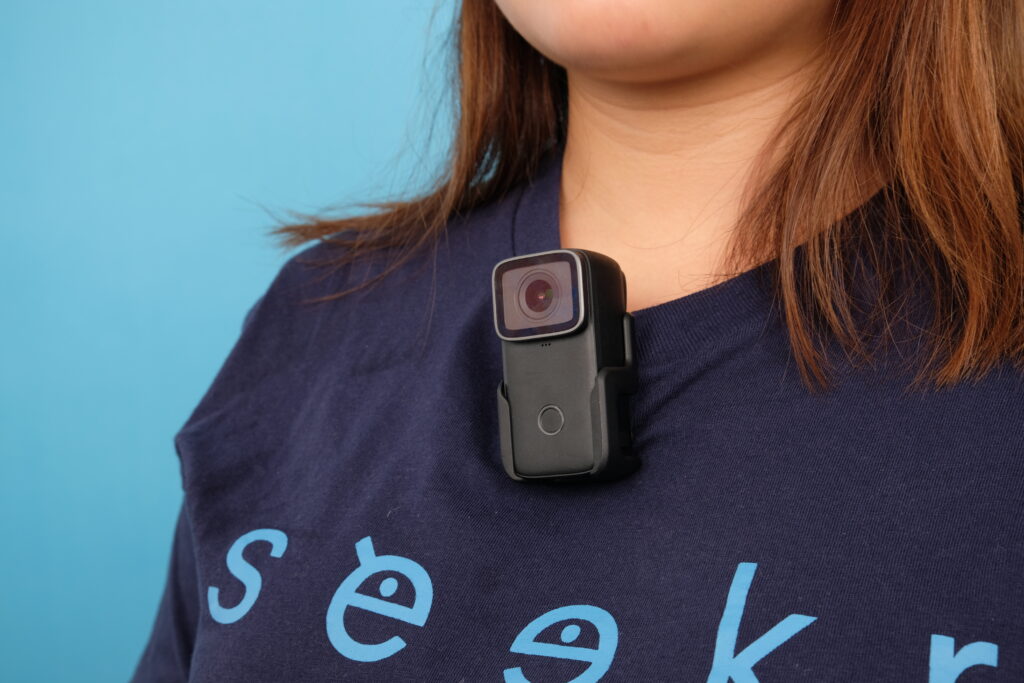
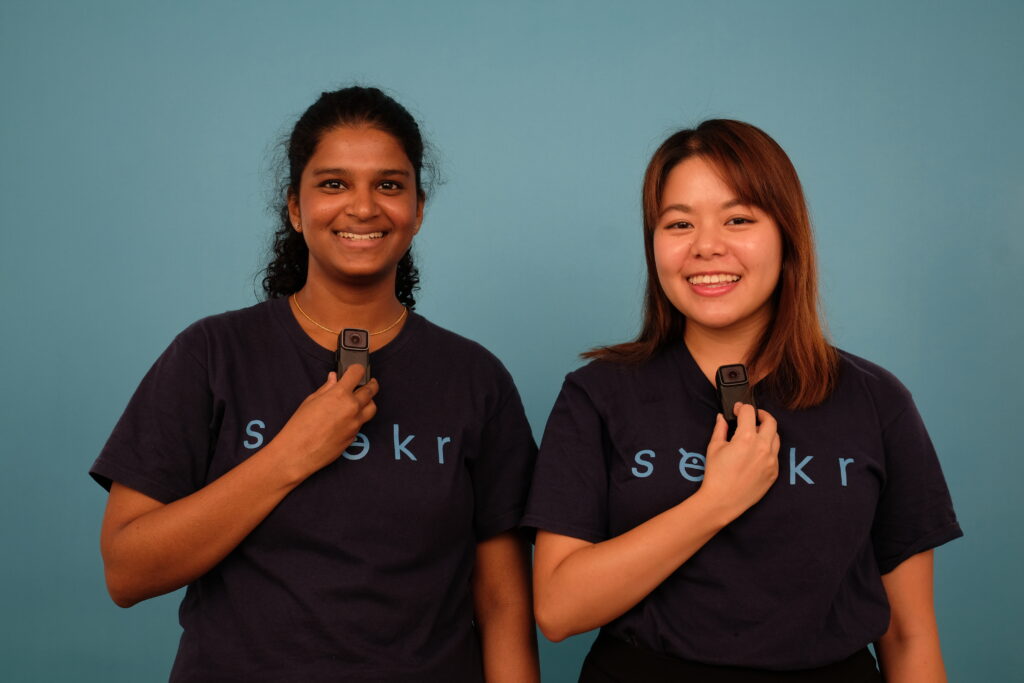
Lamia, can you tell us why you sought direct business support from FSI’s Community Business Support (CBS) team? What was your relationship with the CBS team at that time? What was it that Seekr needed assistance with?
LR: We were making a device for visually impaired people, but we didn’t necessarily have a lot of financial, talent, or tech support necessary to bring our vision to life. As we were making the device and considering the commercial aspect of our company, we realized that we didn’t have the time or skill to work on the app and also the style guide, which was necessary to our design and storytelling efforts.
At that time, what we were looking for was a UX/UI designer, who was going to use Figma to create a style guide and also create our future app and website. And that’s when I reached out to FSI and its Community Business Support team, to see whether they could help us engage the right talent to make Seekr a reality.
My relationship with FSI started when I and the other Co-founder of Seekr underwent training and capacity building at FSI’s inaugural Mentorship Program for Ethnically Diverse Entrepreneurs in 2022. I was also selected by FSI to benefit from PwC’s sponsorship for FSI’s Board Director Training, and Seekr as an organization was chosen to join the Impact Jam that FSI held with Accenture for social impact leaders. We trusted FSI to make a decision and to support us with someone who they thought was capable to take on the job. So when Vivian (Seo) introduced us to Audrey, there was no question asked.
Sometimes in start-ups, you get a gut feeling and you feel like, okay, this is going to work out, and it fortunately did.
Audrey, tell us about your assignment as a CBS intern? How would you describe the experience?
AN: I was assigned the task of redesigning a mobile app, which would be used with Seekr’s device, and also a style guide for their website, which would be used for informational and marketing purposes.
I was surprised that the Seekr team trusted me with this task. As someone with no experience in graphic design, web design, and app development, I am very grateful for the opportunity as I believe that they trusted me to pick up the skills at the required pace.
Safwan, how would you describe the output and working with Audrey? Did the output meet your expectations?
SA: The kind of branding that we were going for was something simple and easy – with our target audience being visually impaired people, we cannot create something that is very complicated or difficult to use.
We actually didn’t have to explain too much to Audrey, she kind of got into it easily. I think the output is very positive. As you can see we’re still using it for our app. And not just the app, the style guide that she made, we’re using it for our website and we’re using it for our social media, so it’s really part of our brand now.
LR: Another thing we really appreciate about Audrey is that, at that time, we didn’t have any interns before. She was really one of the few first batches of interns, so as a startup, it was really a learning experience for us as well, as to how to guide someone and for them to understand our work and make sure that they implement it in the best possible way.
Working with Audrey was easy for us because she didn’t really need much supervision from us. And we always felt like if we gave her something, she would not only deliver but also exceed our expectations. We’re really grateful for that.
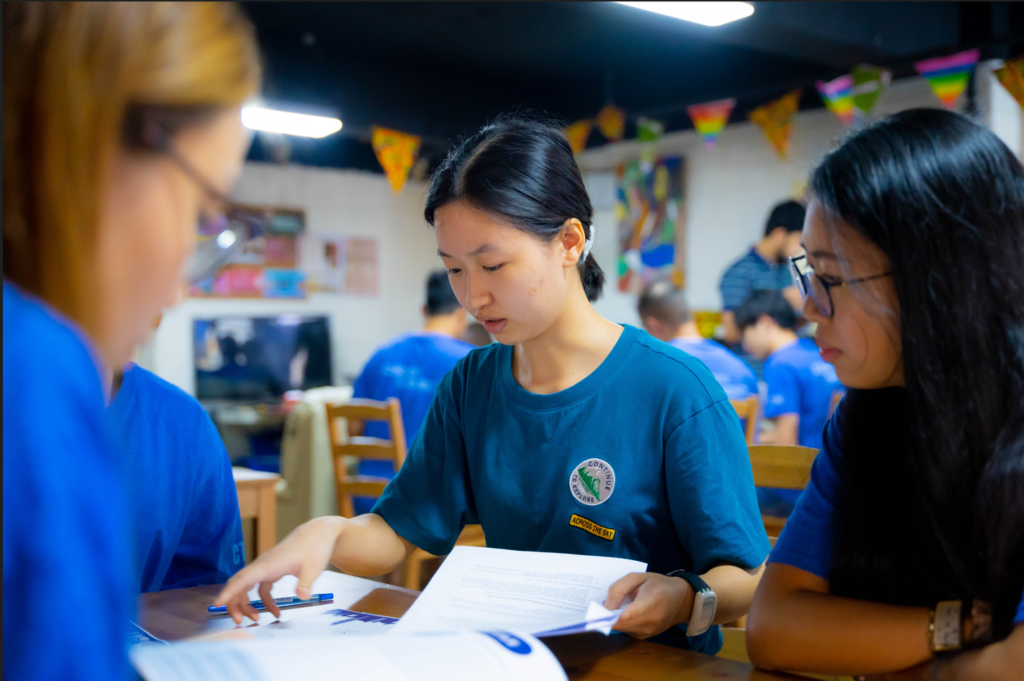
Audrey, how would you describe this engagement? What are the main hard and soft skills that you learnt from the process? Did you pick up any new skills? Do you think you will be able to apply these skills to your study or future career?
AN: One evident soft skill that I learnt is working remotely. Especially in this day and age, it may not be convenient for everyone to meet up in a physical space. Thanks to that, I also trained my self-discipline. Sometimes I couldn’t really understand the feedback I got, and I was the one who had to take the initiative and say, “Hey, I want to clarify if this is what you’re looking for.” So it really gave me the courage of not feeling ashamed for asking for more information. Remote working is going to be a thing, so the self-discipline and courage really helps me adapt to the new and ever-changing modes of work.
In terms of hard skills, of course it’s learning how to use Figma! Actually, this was my first time using Figma to create a whole project. It made me realize that there’s really a lot of resources online on how to use Figma and various other tools. Recently, a professor reached out to me and asked if I could help them design the faculty website. So I think this is a transferable skill that I can bring to my future workplaces.
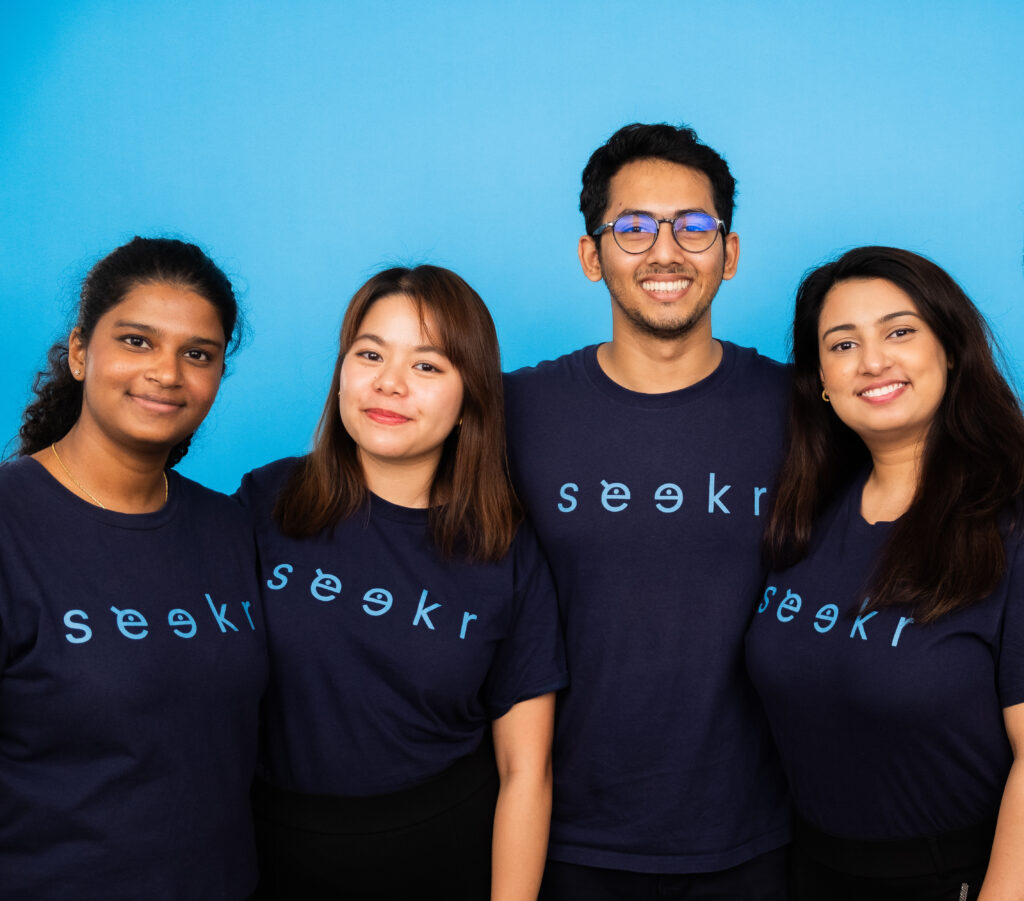
Lamia and Safwan, did Seekr as an organization benefit from this engagement? If yes, in what ways?
SA: Seekr as an organization obviously benefited from this engagement, which really helped with our branding.
LR: We are a brand that is very impact-driven. We are working for one of the most marginalized and often neglected communities in society. We are not a flashy company, so our vibe needs to be somewhat homey, engaging, and also very welcoming to people, regardless of whether or not they are visually impaired. And I feel like that essence is very easily translated in Audrey’s work.
When Audrey joined us we had our first batch of interns. But afterwards, in the span of six months, we’ve had five batches of interns, all working remotely or at the Seekr office. It’s actually taught us to be better leaders, better delegators, and also to understand what motivates a person.
Oftentimes, in a startup, when you don’t necessarily have a lot of financial support, you need to find other ways to keep people motivated and making sure that they are still aligned with the mission day in and day out. So that was a huge learning for us.
Did this engagement change your perspective about your future career, Audrey? Would you recommend fellow youth to get involved in Community Business Support’s work?
AN: Throughout my time in university, most of the time, the pathways they teach us for the future is either to go to a corporate, start your own business, or to continue in academia.
This engagement has made me realize that even if I choose any of these pathways in the future, something that I would like to keep in mind is that every action I do, there is a choice for me to give back to society.
Sometimes when you go to university you think all you can get out of it is just a degree. But there’s something beyond that if you take the initiative and do something not just for yourself. For me, being part of this engagement has given me something that grades or studying can’t bring, and that is experiences.
Of course I would recommend Community Business Support to any future interns, because it’s a very fulfilling experience. You know your skills can be used to help someone, and that someone can help more people. So it’s a very big ripple effect.
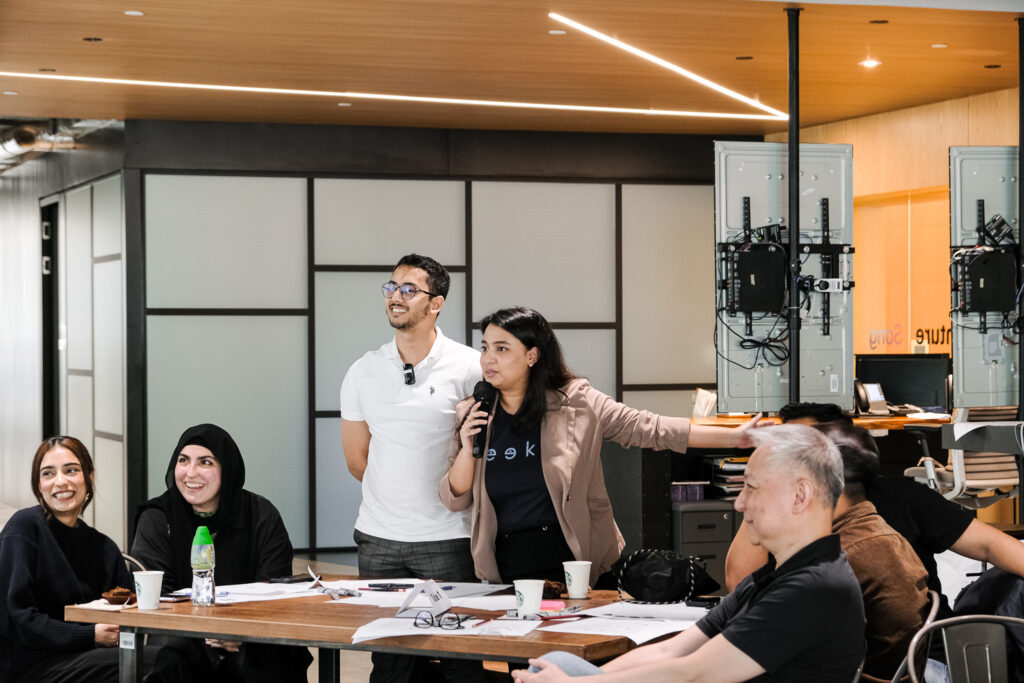
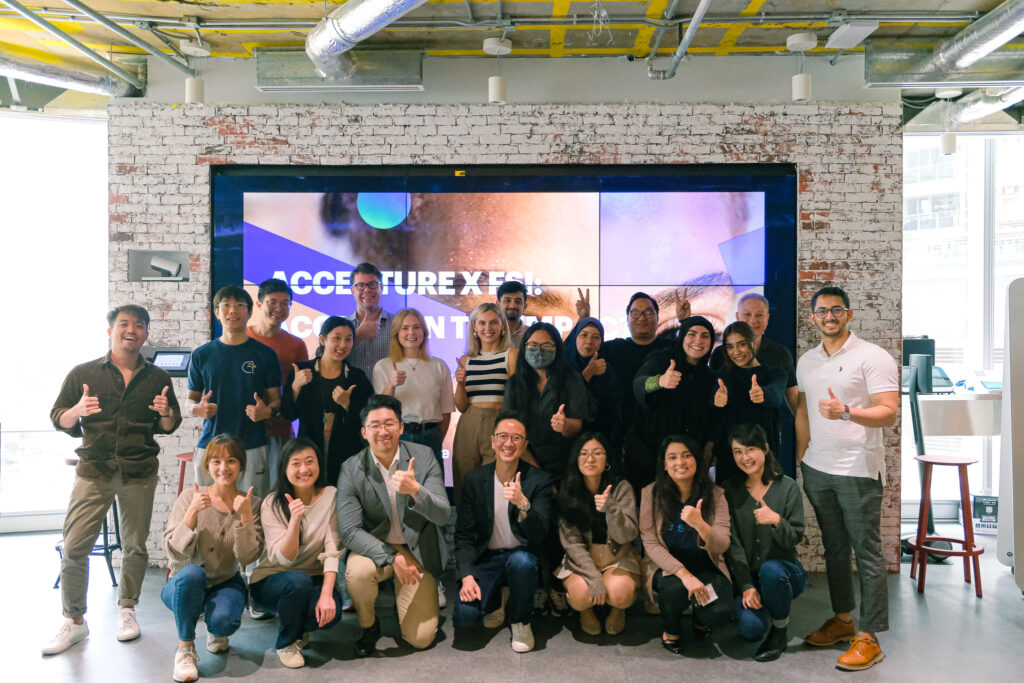
How is FSI’s Community Business Support Program instrumental to young startups like Seekr?
LR: From my understanding of all these programs out there for startups, they are usually about mentor-mentee relationship, and these relationships are definitely very useful when it comes to connections.
However, one thing that we always needed FSI’s help with is recruiting talent. There’s a huge amount of students that want to work in startups, but they may not fit in well in the culture that a particular startup might have.
FSI really is that connector when it comes to students and startups. They help us sort through the right talent, they make sure that we don’t spend too much time or money on getting the right people on board and implementing the work.
But working with FSI doesn’t just get us the right talent but also gives us access to facilities. We are a product-based company, so marketing materials and product shots are very very important to us. To have a place where you could come and take those photos, to make sure you have the right branding, is what I feel I can always rely on FSI for, because they have a team of incredible people.
SA: As a startup, I would definitely recommend this program and initiative by FSI to other startups. I find the philosophy of FSI really helpful because it really makes sense for startups. For companies that are just starting up, obviously they’re not going to have talent in every domain. They’re going to look for talent to fill the gaps in knowledge and expertise, and FSI really helps us to fill in those gaps.
With Audrey we were able to improve our branding. With the engagement with Accenture, made possible by FSI, was also very helpful as well. We gained a lot of knowledge about how to communicate Seekr’s vision to investors and businesses etc. It really helped me with creating all those pitch decks, and we had to make a lot of them!
LR: With the continuous support from FSI, we’re able to make a name for ourselves in the startup community, one being getting to the top 30 Alibaba Jumpstarter Competition.
Like Audrey mentioned, it’s a lot of ripple effects. I think that any startup that really wants to make a mark should definitely consider joining FSI and the CBS community.
